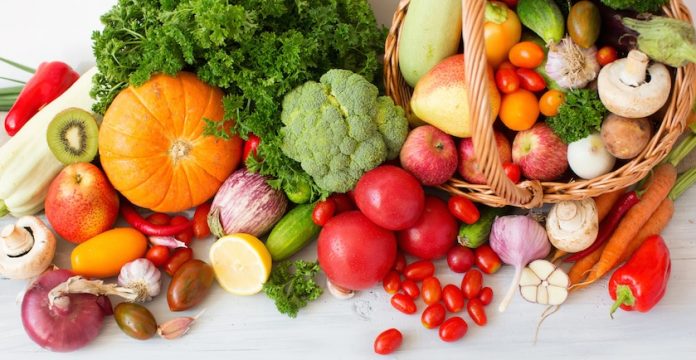
We all hear about the value of eating our fruits and veggies. Let’s take a look at the power of their potent ingredient: phytonutrients.
Phytonutrients are from plants (phyto means ‘from plants” in Greek) and are neither vitamins nor minerals. Phytochemical simply means “plant chemical’. Researchers estimate there are 30,000 to 50,000 of these, of which 1,000 have been isolated, and a mere 100 analyzed and tested. Modern science now believes phytonutrients are what defend and protect our trillions of cells from disease. The number of phytonutrients in a single, unprocessed, plant food is remarkable. When we eat these plants, the phytonutrients protect the bloodstream, cells, tissues, membranes, mitochondria, skin, organs and immune system functions from the onslaught of synthetic chemicals, toxins, automobile or factory emissions, bacteria, pesticides, viruses, fungi, yeast, microbes, mutagens, food additives, free radicals and carcinogens.
Nature has designed plants with successful defense mechanisms. For example, the sulfur in onions and garlic repel bugs, and deep orange colored foods like carrots, apricots and squash contain beta-carotene to protect them from strong sunlight. This amazing natural system benefits us as well.
Well-known phytonutrients:
• Indole-3-carbinol and sulforaphane, found in cruciferous veggies like cabbage, broccoli and kale, are recognized for the role they play in protection against cancer, and in particular, breast cancer.
• Turmeric is a powerful carcinogenic inhibitor, with its’ naturally occurring curcumin.
• Resveratol, found in the skin and pulp of dark grapes, has been researched extensively, and is said to contain powerful cancer-inhibiting qualities as well.
• Lycopene, one of the thousands of phytonutrients in tomatoes, is a cancer-preventing antioxidant, due to its ability to interfere with the production of nitrosamines, implicated in the development of stomach cancer.
Read more about modern food and phytonutrient levels
Common Foods and Phytonutrients• Onions, garlic, leeks, chives: allium and organosulphur compounds.
• Broccoli, cauliflower, kale: indoles, and isothiocyanates such as sulforaphane.
• Blueberries, plums, dark beans: anthocyanins.
• Carrots, yam, cantaloupe, winter squash: carotenoids.
• Citrus fruits, tomatoes: coumarins.
• Anise and licorice: glyceritinic acid.
• Beans and other legumes: isoflavones, protease inhibitors, saponins.
• Whole grains (brown rice, oats, wheat, rye): lignans, phenolic acids, inositols.
• Nuts and seeds: lignans.
• Citrus fruit: limonene.
• Tomatoes and red grapefruit: lycopene.
• Cocoa, tea, and most fruits and veggies: phenols.
Now, we have lots of reasons to make multiple trips to the salad bar, and to embrace the many new raw food creations that are popping up!
Read more about summer salads and healthy snacks




